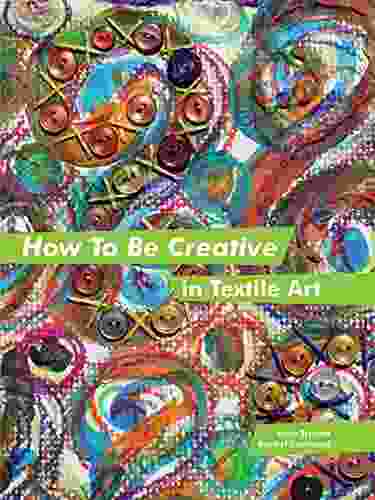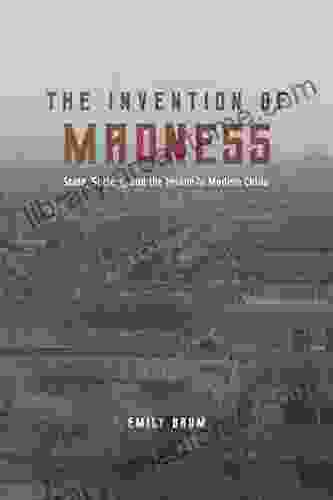Unveiling the Shadows of Madness: Delving into The Invention of Madness

5 out of 5
| Language | : | English |
| File size | : | 2000 KB |
| Text-to-Speech | : | Enabled |
| Screen Reader | : | Supported |
| Enhanced typesetting | : | Enabled |
| Print length | : | 304 pages |
| Lending | : | Enabled |
Within the tapestry of human history, madness has woven its enigmatic threads, leaving behind a profound legacy that continues to shape our understanding of the human psyche. In his groundbreaking work, The Invention of Madness, esteemed medical historian Andrew Scull embarks on an illuminating journey, unraveling the origins and evolution of our concept of mental illness.
Tracing the Roots of Madness
Scull deftly guides us through the annals of history, illuminating the diverse cultural and medical frameworks that have shaped our perception of madness. From the ancient Greeks' notion of humors to the medieval era's demonological beliefs, he reveals the myriad theories that have attempted to explain the enigmatic phenomenon of mental distress.
Asylums: The Crucible of Confinement
The rise of asylums in the 18th and 19th centuries marked a watershed moment in the treatment of mental illness. Scull meticulously examines the complex social and scientific forces that led to the establishment of these controversial institutions. He sheds light on the often-inhumane conditions endured by asylum inmates, highlighting the profound impact these facilities had on the lives of countless individuals.
Challenging Traditional Boundaries
The Invention of Madness boldly challenges conventional wisdom regarding the nature and treatment of mental disFree Downloads. Scull argues that the concept of madness is inherently social, shaped by cultural norms and evolving scientific knowledge. He critiques the diagnostic systems that have come to define mental illness, exposing their inherent subjectivity and limitations.
The Role of Society
Scull unravels the intricate relationship between societal attitudes and the prevalence of mental illness. He explores the profound impact of discrimination, stigma, and social isolation on the well-being of individuals suffering from psychological distress. The Invention of Madness implores us to examine our own prejudices and biases, fostering a more compassionate and inclusive approach to mental health.
Personal Narratives: Voices from the Margins
Beyond the historical analysis, The Invention of Madness poignantly weaves together personal narratives from individuals who have experienced mental illness. These intimate accounts offer a raw and visceral glimpse into the complexities of madness, illuminating the struggles, triumphs, and resilience of those who have faced its challenges.
A Path to Compassion and Understanding
The Invention of Madness is not merely an academic treatise; it is a profound call for empathy and understanding. Scull's meticulous scholarship and compassionate insights challenge us to rethink our assumptions about madness. He urges us to move beyond labels and diagnoses, towards a more humane and holistic approach to mental health.
The Invention of Madness is an indispensable resource for medical professionals, historians, and anyone seeking a deeper understanding of the complex world of mental illness. Andrew Scull's masterful exploration of history, social context, and personal experiences offers invaluable insights into the origins and ongoing evolution of our understanding of madness. This groundbreaking work is a testament to the resilience of the human spirit in the face of adversity and a clarion call for a more just and compassionate society.
Image Alt Attributes
- a painting of a man in a straitjacket, symbolizing the historical treatment of the mentally ill
- an image of a modern mental health hospital, representing the evolution in treatment
- a portrait of Andrew Scull, the author of The Invention of Madness
- a group of people coming together to support someone with mental illness, highlighting the importance of community
5 out of 5
| Language | : | English |
| File size | : | 2000 KB |
| Text-to-Speech | : | Enabled |
| Screen Reader | : | Supported |
| Enhanced typesetting | : | Enabled |
| Print length | : | 304 pages |
| Lending | : | Enabled |
Do you want to contribute by writing guest posts on this blog?
Please contact us and send us a resume of previous articles that you have written.
Light bulbAdvertise smarter! Our strategic ad space ensures maximum exposure. Reserve your spot today!

 DeShawn PowellJoan of Arc By Herself And Her Witnesses: Uncovering the True Story of the...
DeShawn PowellJoan of Arc By Herself And Her Witnesses: Uncovering the True Story of the...
 Kenneth ParkerUnveiling the Plastic Revolution: Discover the Latest from Wrapped In Plastic...
Kenneth ParkerUnveiling the Plastic Revolution: Discover the Latest from Wrapped In Plastic...
 Howard BlairEliminate Procrastination: Increase Productivity, Focus, and 50 Quick Daily...
Howard BlairEliminate Procrastination: Increase Productivity, Focus, and 50 Quick Daily... Ibrahim BlairFollow ·3k
Ibrahim BlairFollow ·3k David MitchellFollow ·14.3k
David MitchellFollow ·14.3k Eli BrooksFollow ·4k
Eli BrooksFollow ·4k Ernest J. GainesFollow ·18.4k
Ernest J. GainesFollow ·18.4k Brody PowellFollow ·5.5k
Brody PowellFollow ·5.5k Jeremy CookFollow ·3.1k
Jeremy CookFollow ·3.1k Justin BellFollow ·15.9k
Justin BellFollow ·15.9k Walter SimmonsFollow ·9.6k
Walter SimmonsFollow ·9.6k

 Lord Byron
Lord ByronHow to Be Creative in Textile Art: A Comprehensive Guide...
Textile art is a...

 Kenneth Parker
Kenneth ParkerMaster the Art of Grilling with "The BBQ Sauces Cookbook"
Are you tired of the same old...

 Jerome Blair
Jerome BlairTeaching Ceramics Potter Manual: Unlock Your Inner Artist...
Imagine the satisfaction of crafting exquisite...

 Paulo Coelho
Paulo CoelhoLiberating Yourself From Lyme: A Comprehensive Guide to...
What is Lyme...

 Banana Yoshimoto
Banana YoshimotoInspiring Art Explorations: Unleashing Creativity in...
Prepare to be inspired...
5 out of 5
| Language | : | English |
| File size | : | 2000 KB |
| Text-to-Speech | : | Enabled |
| Screen Reader | : | Supported |
| Enhanced typesetting | : | Enabled |
| Print length | : | 304 pages |
| Lending | : | Enabled |














































